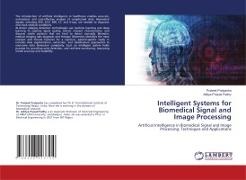Read more
The introduction of artificial intelligence in healthcare enables accurate, automated, and cost-effective analysis of complicated data. Biomedical signals, including EEG, ECG, MRI, CT, and X-rays, are needed to diagnose and track medical conditions.AI-driven epilepsy detection technologies use machine learning and deep learning to improve signal quality, extract relevant characteristics, and discover subtle patterns that are hard to detect manually. Biometric medical imaging aids diagnosis and therapy. Biometrics identifies the most relevant and minute features for a rigorous, patient-specific study. It includes data segmentation, extraction, and classification approaches to overcome data dimension complexity. Such an intelligent system holds promise for providing early detection, and real-time monitoring, improving model accuracy and scalability.
About the author
Dr. Prateek Pratyasha has completed her Ph.D. from National Institute of Technology Raipur, India. Now she is working in the domain of biomedical research.Dr. Aditya Prasad Padhy is an Associate Professor of Electrical Engineering at ARKA JAIN University, Jamshedpur, India. He was awarded a Ph.D. in Electrical Engineering in 2021 from NIT Raipur.

